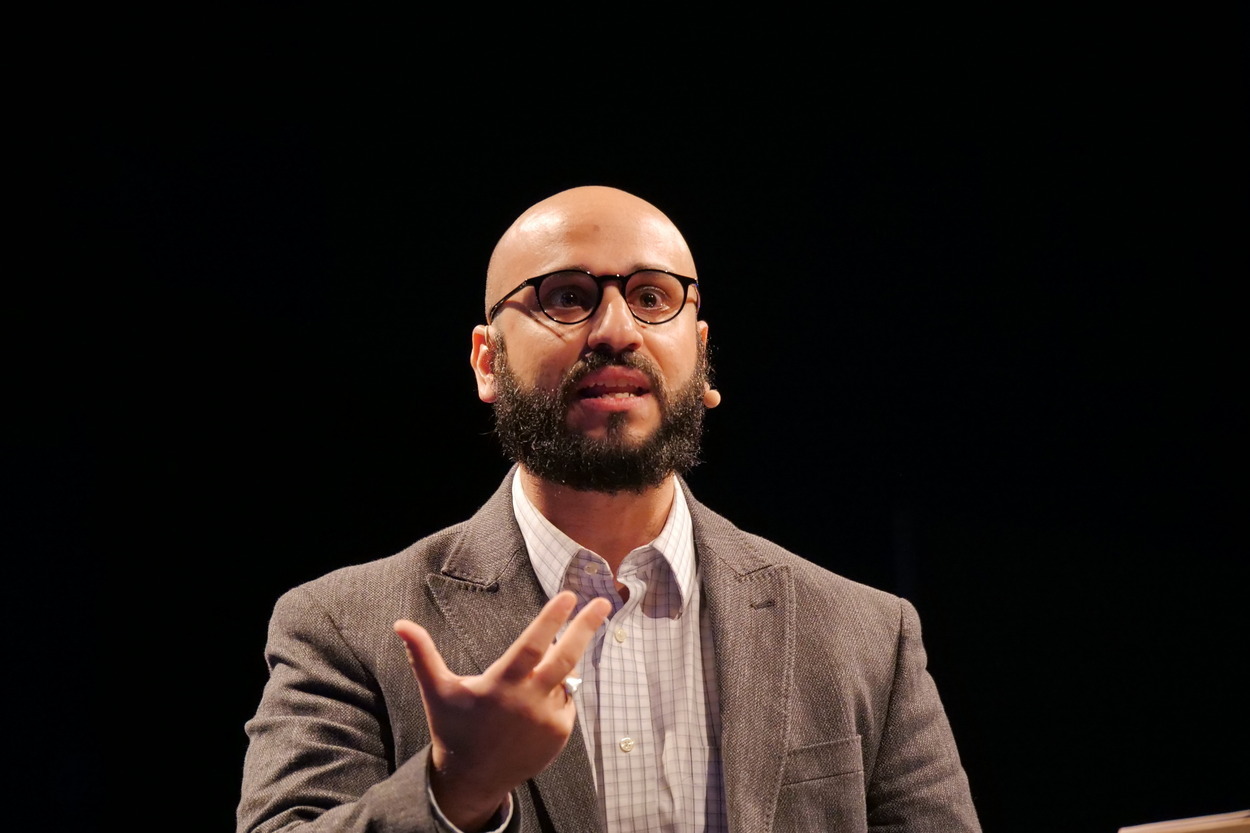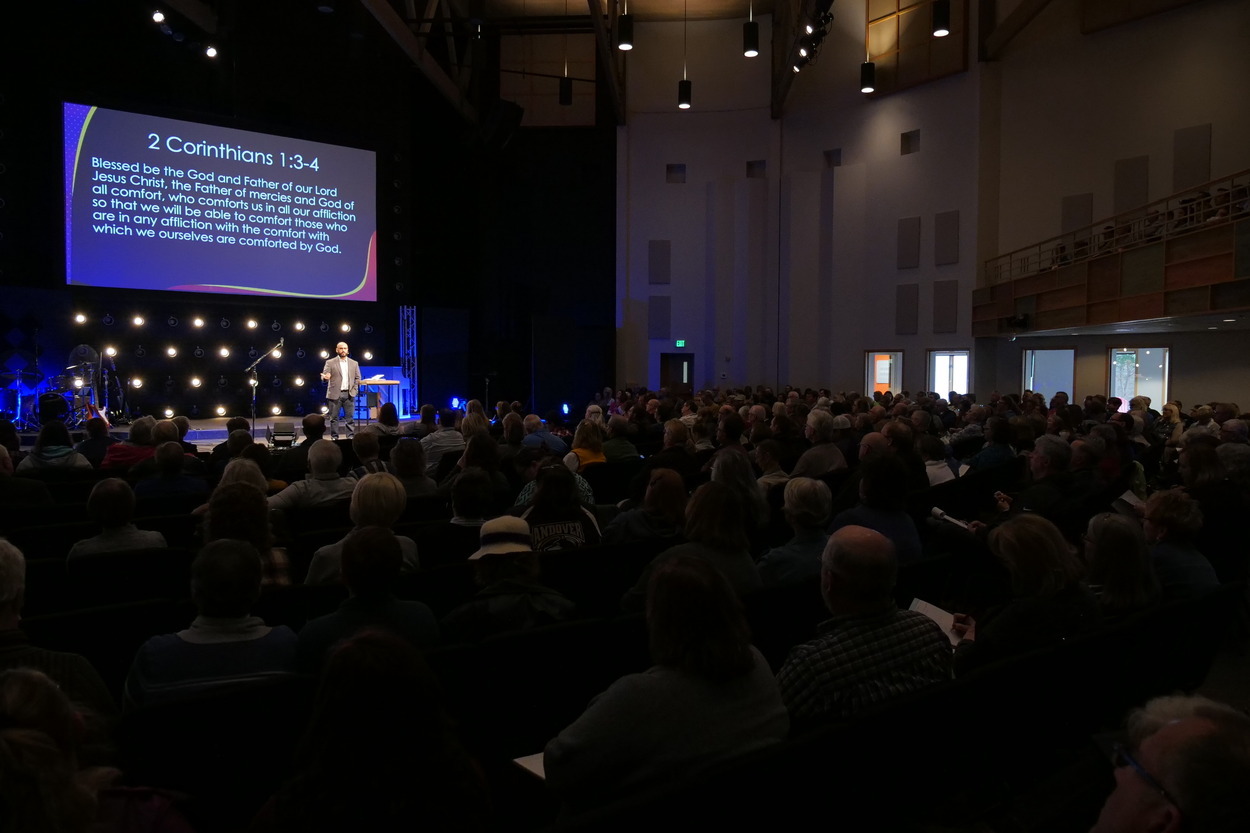
Rev. Roz Picardo on reaching personally, sharing our stories

Rev. Rosario “Roz†Picardo shared with REACH! attendees Saturday morning how to tell their story. Photos by Dave Stucke, Dakotas Conference.
We don’t share our stories. Because of that, Christianity has become stagnant in the U.S. while it’s exploding worldwide, Rev. Rosario “Roz” Picardo told REACH! attendees Saturday morning. According to Lifeway Research, American churchgoers believe they should share their faith, but the majority never do. Eighty percent of those polled agreed that sharing their faith is an important part of following Jesus, and 75 percent feel they are able to communicate the gospel well, but more than 60 percent haven’t done so in the past six months, and nearly half have never invited anyone to attend a church service or program.
We don’t share our stories because we’re afraid—of doing more harm than good, of not knowing what to say, of invading privacy, of being a hypocrite, of failing, or of being rejected.
“There are people who need to hear your story—your unique story, the way God has wired you, and what God has done in your life,” said Picardo, executive pastor of new church development at Ginghamsburg Church in Ohio.
“You know what’s amazing about your story? It points back to God,” said Picardo. “It’s not just your story, it’s God’s story.” He asked: Who could to be helped because of your story? Who could be healed because of your story? Who could receive forgiveness because of your story?

Reach! attendees rehearsed and shared their stories at the opening session on Saturday.
Sharing our story is a stewardship issue.“When we don’t share our story, we lose our story,” Picardo said. To share our stories is to invest in the lives of the people around us. “Sharing my story is not about me—it’s a matter of obedience because God is at work.”
If you want to point people to Jesus, you don’t have to have it all together, Picardo said. In fact, the fact that you don’t have it all figured out makes you more relevant. “God uses ordinary people,” Picardo said.
Some of us are afraid to share our story because we think it’s too ordinary. Somebody is dying to hear your story, Picardo said. Somebody needs the hope, help, healing, encouragement, and direction to God that only your story can tell. God uses people to impact other people. “What difference has Christ made in your life? What would your life be without Jesus?”
The recovery community can teach us something about sharing our stories. “They don’t get hung up on what they used to be,” Picardo said. “They focus on what they are today. You are a new creation in Jesus Christ…Ordinary becomes epic in God’s story.”
When we share our stories, it must be done with love. Look for opportunities to share your story in the context of relationship and conversation—not by preaching to someone or beating them over the head with the Bible, Picardo said. “Nobody wants to be saved by you. It’s only Jesus that can do the saving, friends. Power void of love is destructive and downright demonic.” So when it comes to sharing our stories, love that person you’re sharing with—whether or not they accept your story, whether or not they accept Jesus. Love them for them.
Create and rehearse a two- to three-minute elevator speech for your story. This is intended to be a bridge that could lead into a larger discussion. Allow yourself to be led by the Holy Spirit. Then, look for a receptive audience. Your story is unique and God-breathed, so be confident in your story. Be real; don’t use lofty church language. And know your arc. Every story has a beginning, a middle, and an end. What was life like before your Jesus encounter, what was your Jesus encounter, and what does your life look like now?
Here’s a framework for crafting your elevator speech: I used to be ________. My turning point was ________. Now I’m ________. Fill in those blanks, and then flesh out your story from there. An example that a Reach attendee shared (paraphrased):
I used to be abused. I used to be a victim. I used to hate myself and felt I was as worthless as I was being told every day over and over. My turning point came when someone gave me a short book called “The Unconditional Love of Jesus.” I had never heard of unconditional love. I read that book at a silent retreat, and then I read it again and again because I thought I wasn’t worthy. Then I went on my knees and said, “Jesus, you’ve got to help me. I need you.” That was my turning point. Now I am brokenly whole. I still suffer from PTSD. There are things I can hardly get myself to do. But I always remember that no matter what, Jesus loves me. He gave me this journey for a reason, and that is to share his unconditional love for all.
“We have to believe our story is worth telling,” said Picardo. Don’t give in to the spirit of fear. When he’s sharing his story with someone, “I don’t look at who they are now—I look at who they can become in Jesus Christ.”